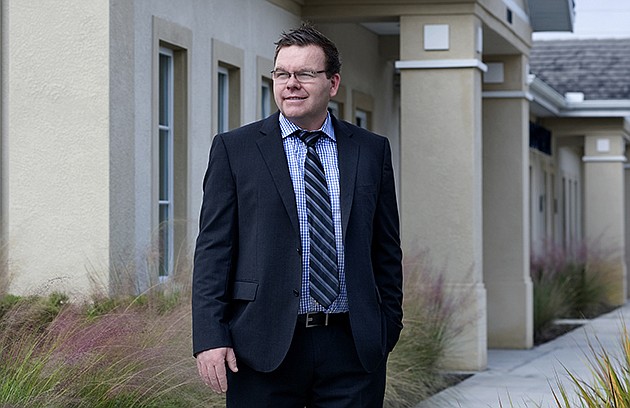- November 24, 2024
-
-
Loading

Loading

The Gulf Coast Property Management sales team learned a constructive lesson in consultative sales when they were on the buy side of a product.
The firm, which helps property owners and investors, mostly in Manatee and Sarasota counties, rent homes and vacation condos, was recently in the market for operational software. Founder and President Andy Moore says the first salesman made an online video presentation. He was all about price and 14-day guarantees. “He wasn't really listening to what we were saying,” says Moore.
The next company sent a salesperson to Gulf Coast Property Management's Lakewood Ranch headquarters. The first words out of the salesman's mouth, says Moore, was, “What are your pain points?”
Says Moore: “We feel like he really listened to us.”
The decision was easy. The firm chose the second company. And in doing so, it was a real-life example of something Moore and his three-person sales team have worked on for a few years: Going from a data-driven, talk-a-lot sales strategy to a consultative, problem-solving approach. “Instead of bombarding people with information,” says Moore, “we step back and listen to what they need.”
The transformation, combined with sales-training classes and some other changes, has been a big boost for Gulf Coast Property Management. The portfolio of properties under management, says Moore, increased 40% last year, to about 300. With 18 employees, the company does about $5 million in annual revenues, up from $3 million two years ago.
“For me, it goes back to the principle that people choose to do business with you,” says Moore, not just buy a product or service. “People buy. They are not sold.”
The firm works with Lakewood Ranch-based JFK Business Development, which offers a series of Sandler sales training classes taught by Jamie Kane. Moore spends about $15,000 a year to send his sales staff to attend weekly classes. Moore also takes management sales classes with Kane.
Moore has made several other changes to the firm, beyond a shift in sales strategy. The goal is to create a more customer-friendly mindset. He trimmed most of the firm's rental contracts from seven to two pages, for example. “We made it really simple,” says Moore.
Gulf Coast Property Management also no longer requires clients to use the firm's in-house maintenance team to fix problems like broken air conditioners or leaky faucets. Moore says the in-house crew is a good secondary revenue stream, and he was afraid to give any of it up. But now, says Moore, “I think you have to give people the power to decide.”
Moore founded Gulf Coast Property Management in 2003, with a background far away from the industry — philosophically and geographically. Moore was a police officer for 14 years in his native Coventry, England, rising to detective. In 2000 he bought a vacation home in Manatee County. He soon sought a property management firm, but he couldn't find a good one. So he moved to America and started his own company.
Gulf Coast Property Management now oversees three kinds of properties: homes with owners up north or away for a season or period of time; vacation rentals; and annual rentals. The biggest source of potential clients, says Moore, comes from the Web and search engine marketing.
One more change Moore has made with the firm is in talking to employees about how they approach their jobs. He believes the talks, with a focus on the whys of what the firm does, play a subtle, but key role in the sales growth. Some recent business reading, including “Start With Why” by Simon Sinek and “The E-Myth” by Michael Gerber, has inspired Moore.
“I've been reading business books like crazy,” Moore says. “We have really tried to focus on our culture.”
Sales Tips
Have strong qualifications for sales leads. “A full pipeline,” says Moore, “is only beneficial if it has the possibility of generating actual sales.”
Be clear about internally identifying What makes you different. Says Moore: “I don't compete on price, but even if price is your only differential, you need to know why.”
Even the best targeted prospects seek a sales process where they are heard. “Contrary to popular belief,” Moore says, “selling is 80% listening and 20% talking. That way you can identify what the prospect really wants and needs.”